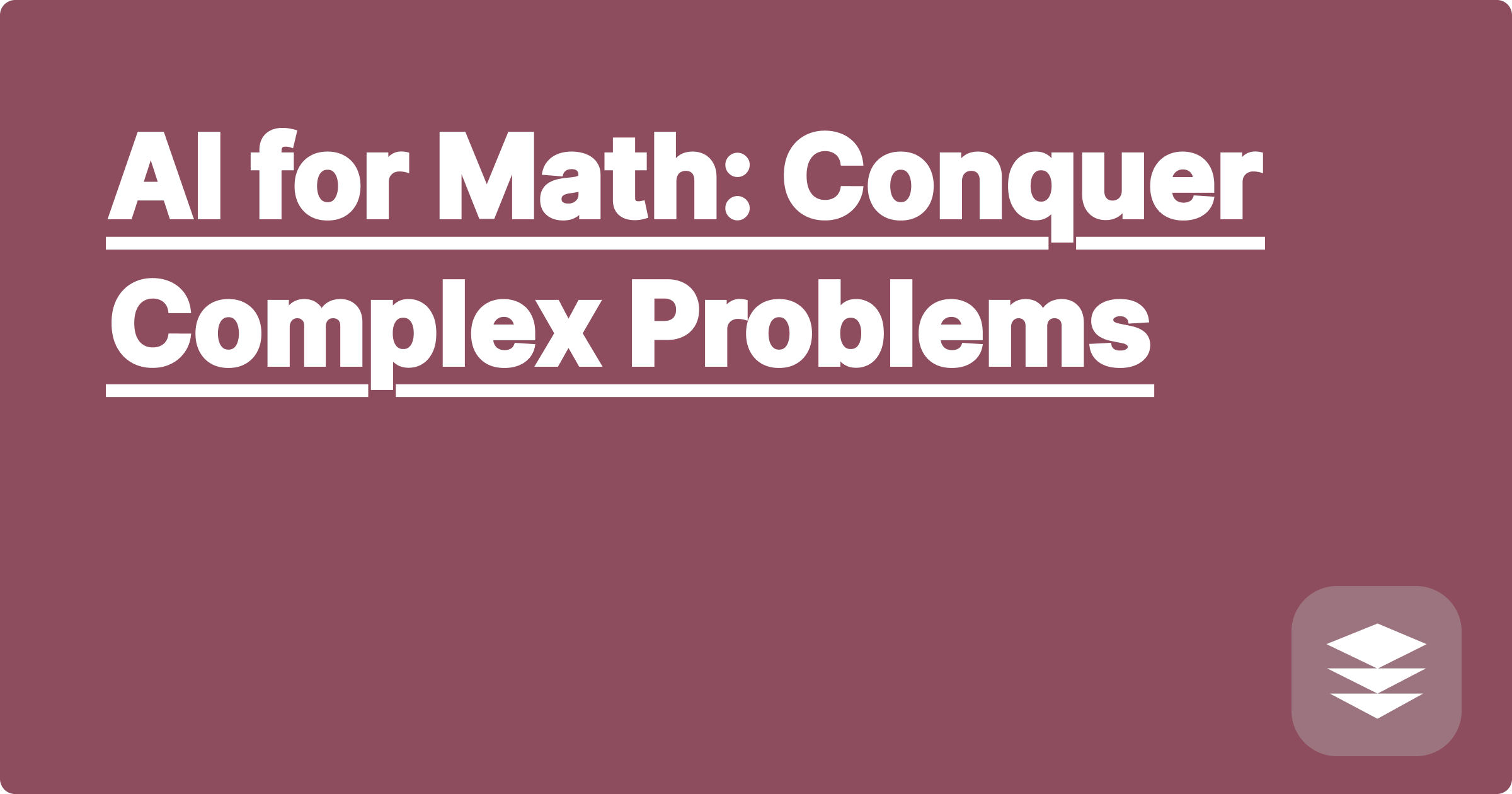
The world of STEM is a challenging yet rewarding one. It demands rigorous thinking, complex problem-solving, and a constant thirst for knowledge. For many students and researchers, the sheer volume of information and the difficulty of the concepts can feel overwhelming. Fortunately, the rise of artificial intelligence offers a powerful new set of tools to conquer these challenges and unlock unprecedented levels of understanding. AI isn't just about automating tasks; it's about augmenting our own abilities, providing personalized learning experiences, and accelerating the pace of discovery.
Navigating the complex landscape of STEM education and research can often feel like traversing a dense jungle. There's a constant pressure to keep up with the latest advancements, master intricate concepts, and produce high-quality work. This is where AI comes in as your personal machete, clearing the path and helping you navigate more efficiently. Imagine having a personalized tutor available 24/7, capable of explaining complex concepts in a way that resonates with your learning style, or a research assistant that can sift through mountains of data to uncover hidden patterns. This isn't science fiction; it's the reality of AI-powered learning and research. This blog post will explore how AI can empower you to conquer complex math problems, boost your academic performance, and streamline your research process. We'll delve into the power of GPAI (Generalized Personal AI Partner), a personalized AI assistant, and explore niche AI tools that can revolutionize your approach to STEM.
Mathematics, the foundation of many STEM disciplines, often presents significant hurdles for students. From grasping fundamental concepts to solving intricate equations, math can be a source of frustration and anxiety. Traditional learning methods often fall short in providing personalized support, leaving students struggling to keep up. Research in STEM fields also faces significant challenges. The ever-increasing volume of data, the complexity of analysis techniques, and the pressure to publish novel findings can be overwhelming. Researchers often spend countless hours on tedious tasks, diverting valuable time from the core focus of their work. This is where AI can be a game-changer, offering personalized learning experiences, automating repetitive tasks, and providing insightful analysis.
AI tools offer a revolutionary approach to tackling mathematical challenges. Tools like Wolfram Alpha can provide step-by-step solutions to complex equations, helping students understand the underlying logic and principles. ChatGPT and Claude can be used to generate practice problems, explain concepts in different ways, and even provide personalized tutoring. These tools can adapt to individual learning styles and provide targeted support where it's needed most. For researchers, AI can automate data analysis, identify relevant literature, and even assist in formulating hypotheses.
Integrating AI into your workflow is easier than you might think. First, identify the specific areas where you need support. Are you struggling with a particular math concept? Do you need help analyzing a large dataset? Once you've identified your needs, choose the appropriate AI tool. For example, if you're stuck on a differential equation, Wolfram Alpha can provide a detailed solution and explanation. If you need help understanding a concept, ask ChatGPT or Claude to explain it in simpler terms or provide real-world examples. For literature reviews, use a specialized AI tool designed to analyze research papers and extract key information. Experiment with different tools and find the ones that best suit your learning style and research needs.
Imagine you’re grappling with a complex integral. Instead of spending hours poring over textbooks, you can input the equation into Wolfram Alpha and instantly receive a step-by-step solution, along with visualizations and alternative approaches. Or, suppose you're researching the applications of machine learning in drug discovery. An AI-powered literature review tool can quickly scan thousands of research papers, identifying the most relevant articles and summarizing key findings, saving you weeks of manual research. GPAI can be used to create a personalized study plan based on your strengths and weaknesses, track your progress, and provide targeted feedback. You can ask GPAI to generate practice quizzes, summarize complex research papers, or even brainstorm research ideas. Another example is using GPAI to manage your research project timeline, set deadlines, and track your progress. This can help you stay organized and ensure that you complete your research on time.
To maximize the benefits of AI, it's crucial to develop effective strategies. Don't rely solely on AI for answers; use it as a tool to enhance your understanding. Actively engage with the material, ask questions, and challenge the AI's responses. Treat AI as a collaborative partner, not a replacement for your own critical thinking. Experiment with different prompts and learn how to phrase your questions to get the most insightful responses. Document your AI-assisted learning and research process. This will help you track your progress, identify areas for improvement, and build a portfolio of your work.
Finally, remember that AI is a constantly evolving field. Stay up-to-date on the latest advancements and explore new tools as they emerge. Embrace the power of AI to transform your STEM journey, but always maintain a critical and discerning approach. By integrating AI strategically into your workflow, you can unlock your full potential, conquer complex challenges, and achieve academic excellence. Start exploring these tools today and discover the transformative power of AI for yourself. Embrace the future of learning and research, and let AI be your guide on the path to success.
AI for Differential Equations: Solve Problems
AI for Earth Science: Explore Data
AI for Aerospace Eng: Flight Sim
AI for Physics Labs: Data Analysis
AI for Genetics: Understand DNA
AI for Electrical Eng: Circuit Design
AI for Biochemistry: Enzyme Kinetics
AI for Math: Conquer Complex Problems